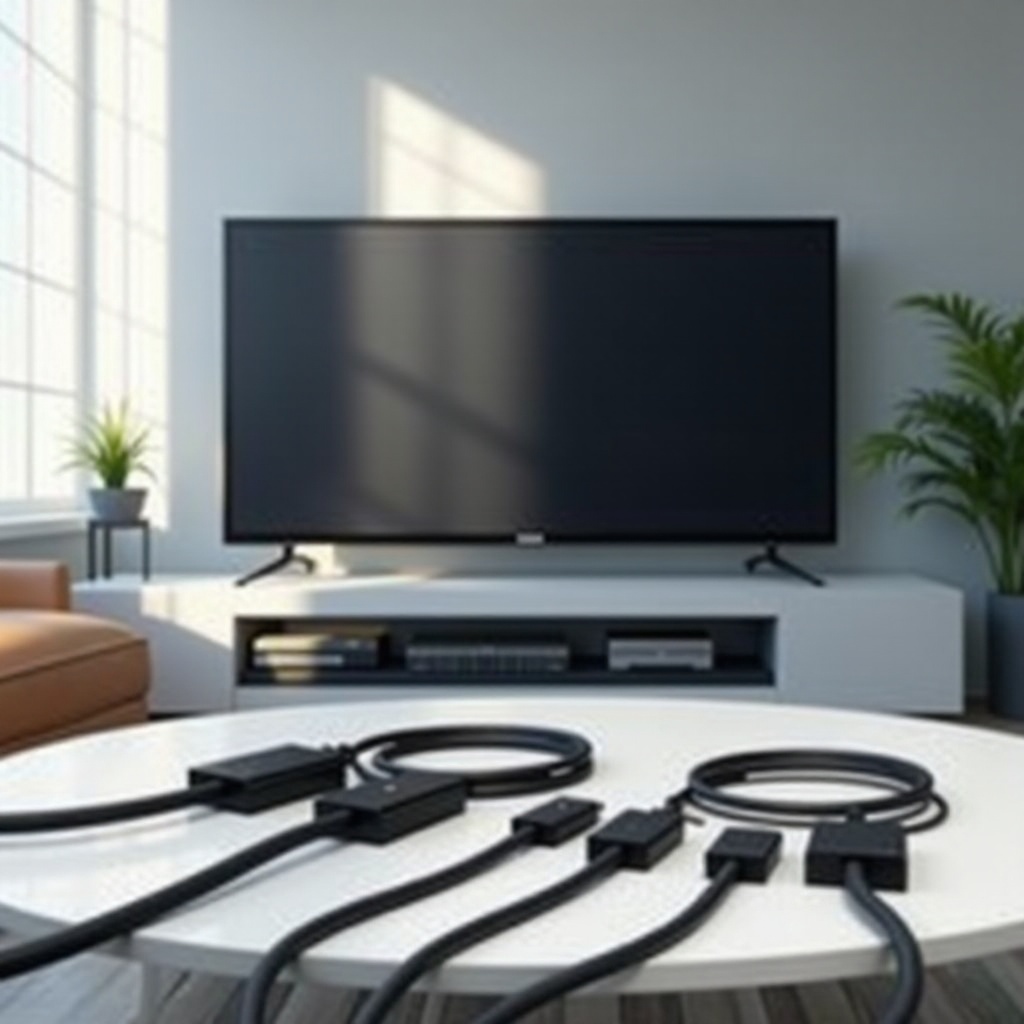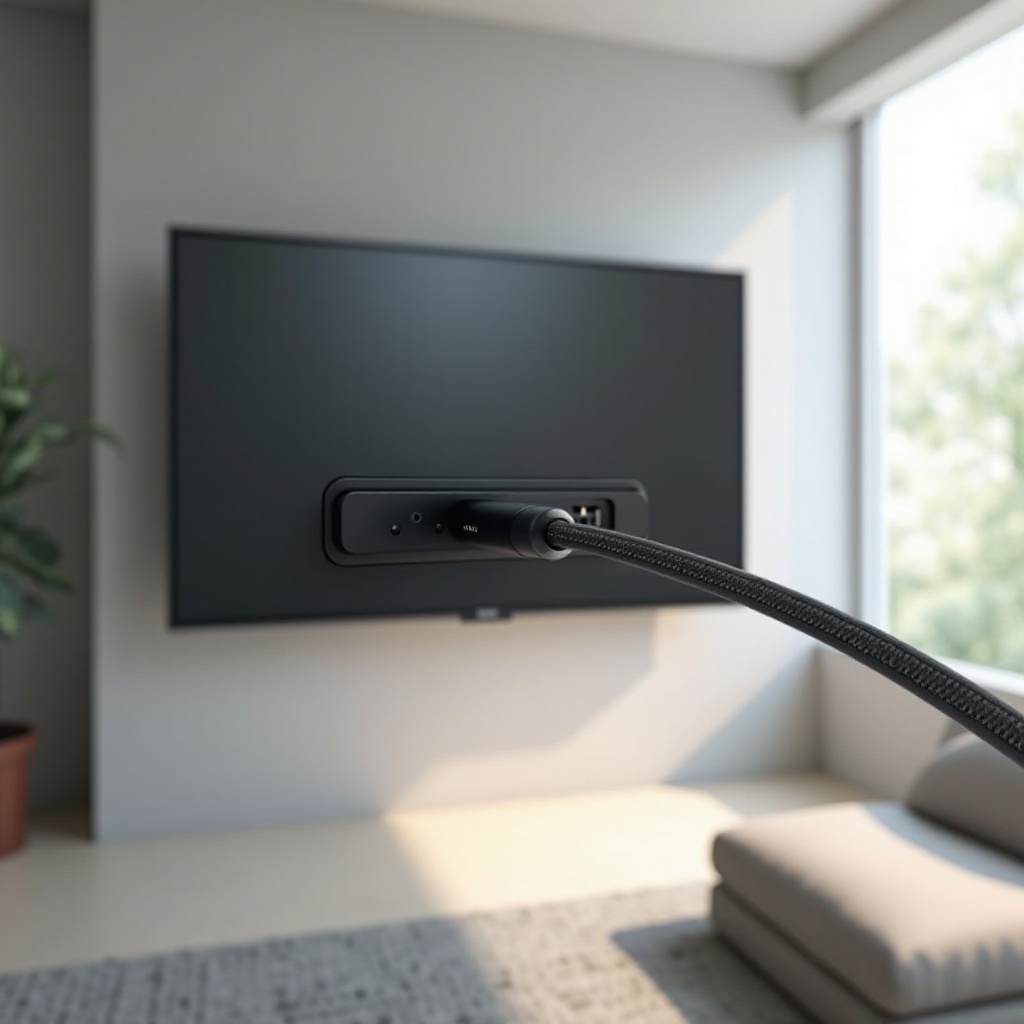Introduction
In today’s digital age, setting up a smart TV can feel daunting given the array of connections and cables involved. Among these, HDMI cables are a staple, renowned for their ability to transmit high-definition audio and video through a single connection. However, with the rise of wireless alternatives, many question whether HDMI cables are still necessary for smart TVs. In this guide, we delve into the importance of HDMI cables, explore their advantages, and consider alternative options. By providing a thorough understanding, you’ll be better equipped to optimize your viewing experience and make informed decisions regarding your setup.

Understanding HDMI Cables and Their Purpose
High-Definition Multimedia Interface (HDMI) cables are integral to modern home entertainment systems. They ensure the transfer of high-quality audio and video signals between devices such as smart TVs, gaming consoles, Blu-ray players, and home theater systems. The digital nature of HDMI means it can accommodate video resolutions from standard definition to 4K, and even further, while supporting advanced audio formats like Dolby Atmos.
The transition from older analog cables to HDMI brought about a significant improvement in signal integrity by maintaining an entirely digital transmission. This results in a clear, precise audio and video output that enhances overall quality. Additionally, HDMI simplifies setups by combining multiple audio and video channels into a single cable. This reduction in clutter, paired with enhanced performance, continues to affirm HDMI as a preferred method of connection, even as wireless technologies become more prevalent.
Do Smart TVs Require HDMI Cables?
While HDMI cables provide numerous benefits, understanding their necessity for smart TVs is crucial. Smart TVs are designed with built-in internet connectivity, allowing users to stream content directly via apps like Netflix, Hulu, and YouTube without additional cables. Consequently, one might wonder if HDMI cables are even needed given these devices’ standalone capabilities.
Indeed, smart TVs can function without HDMI cables for streaming or browsing. However, to connect external devices like gaming consoles, DVD players, or set-top boxes for optimal performance, HDMI cables are indispensable. Therefore, while not required for the TV’s independent operations, HDMI cables are essential for enriching the experience when interfacing external devices, ensuring superior audio and visual quality.

Benefits of Using HDMI Cables with Smart TVs
When incorporated into smart TV setups, HDMI cables offer significant advantages. One primary benefit is their ability to deliver superior audio and video quality compared to analog or some wireless solutions. HDMI cables support high-definition visuals and high-fidelity audio, essential for an exceptional entertainment experience.
Additionally, HDMI cables enable a variety of features like the Audio Return Channel (ARC) and HDMI-CEC. ARC allows for seamless audio exchange between a TV and a sound system through one HDMI cable, reducing the need for extra audio wires. Meanwhile, HDMI-CEC provides the convenience of controlling connected devices with a single remote, enhancing user convenience.
Perhaps most importantly, HDMI cables offer a stable and consistent connection. Unlike some wireless alternatives that may face interference or signal degradation, HDMI maintains relentless performance. This reliability makes HDMI cables a cornerstone for those prioritizing stability in their media systems.
Exploring Alternatives: Wireless Connectivity Options
Despite the many advantages of HDMI, some users prioritize the convenience of wireless setups. Options like Wi-Fi, Bluetooth, and streaming devices present cable-free alternatives, ideal for reducing setup complexity.
Wi-Fi is a common choice, connecting smart TVs to the internet to enable streaming from applications without auxiliary devices. It works exceptionally well for consuming online content from services like Netflix or Hulu. For audio, Bluetooth offers simple pairing with wireless sound systems.
Another option is wireless HDMI transmitters that send HDMI signals across short distances without needing a physical cable. While convenient, these often come with elevated costs and susceptibility to interference.
Nonetheless, while wireless solutions are suitable for certain scenarios, they often fall short in the reliability and quality compared to HDMI. Thus, your preference between maximum convenience and consistent performance should guide your decision in choosing the right setup.
Choosing the Right HDMI Cable for Your Smart TV
Selecting the appropriate HDMI cable requires consideration of specific requirements and device specifications. Here are critical factors to take into account:
-
Cable Version: Ensure compatibility with your devices by selecting a cable that meets their standards. For 4K TVs, an HDMI 2.0 or 2.1 cable will ensure optimal performance.
-
Length: Choose a cable length appropriate for your setup distances to avoid excess cables, which can contribute to clutter.
-
Quality: High-quality cables offer durable construction and minimize signal degradation, making them a worthwhile investment for longevity. Look for cables with robust connectors and strong jackets.
By aligning your chosen HDMI cable with your setup’s needs, you can ensure both performance stability and prolonged cable life.

Conclusion
In drawing to a close, while smart TVs are capable of operating independently, utilizing HDMI cables enhances their performance, particularly with external device connections. HDMI delivers superior audio and video quality, as well as dependable connectivity, making it a valuable addition to home entertainment systems. Balancing the benefits of HDMI with the convenience of wireless solutions enables you to craft a personalized viewing experience, perfectly suited to your needs.
Frequently Asked Questions
Why is an HDMI cable recommended for smart TVs?
HDMI cables offer high-definition audio and video transmission, supporting features like 4K resolution, HDR, ARC, and HDMI-CEC. These benefits make HDMI cables the recommended choice for enhancing your smart TV’s performance with external devices.
Can I use a smart TV without an HDMI cable?
Yes, smart TVs can stream content through built-in apps without HDMI cables, leveraging their network connectivity. However, for external devices such as gaming consoles or Blu-ray players, HDMI cables are required for optimal functionality.
What are the different types of HDMI cables available for smart TVs?
There are several HDMI cable types, including Standard, High-Speed, Premium High-Speed, and Ultra High-Speed, each supporting different resolutions and features. High-Speed (HDMI 1.4) and Premium High-Speed (HDMI 2.0) cables suffice for most users, while Ultra High-Speed (HDMI 2.1) caters to the latest 8K and advanced gaming needs. Choose based on your specific TV and device specifications.